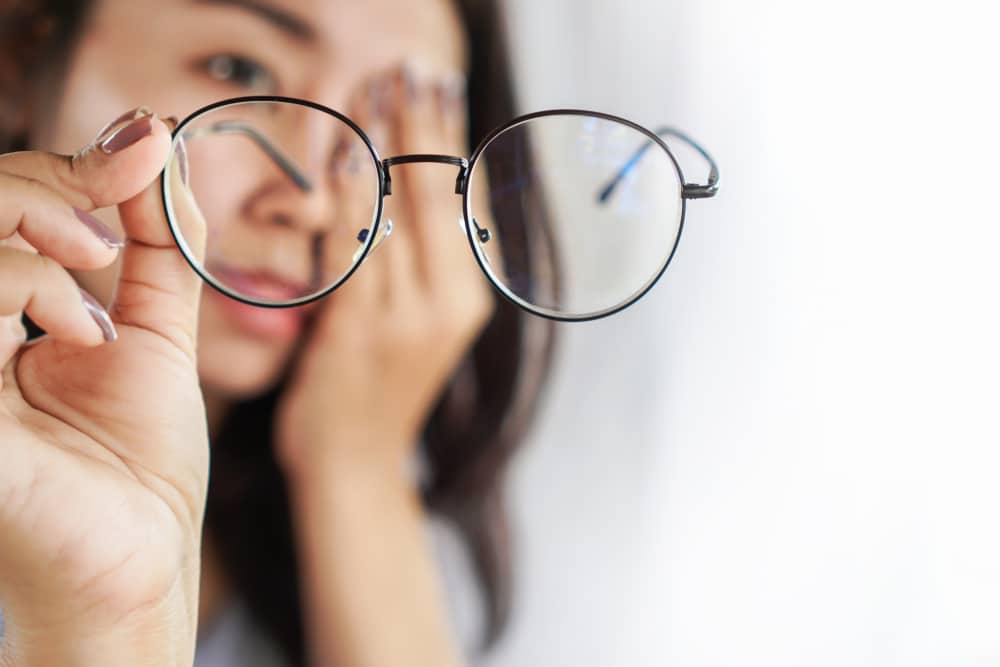Table of Contents
Getting a new pair of glasses is always exciting, but it can also come with a bit of an adjustment period. Whether it’s a new frame style, updated prescription lenses, or switching to progressive lenses, it’s normal for your eyes to need some time to adapt. During this phase, you might experience some discomfort, such as blurry vision, eye strain, or even a sense that things just feel weird. But don’t worry—this is common, and there are several factors that play into how long it takes to adjust to your new glasses. In this guide, we’ll cover what you can expect and offer tips to help make the transition smoother.
The Initial Adjustment Period
Adjusting to new glasses typically takes a few days to two weeks, depending on various factors such as the type of lenses, your prescription strength, and individual sensitivity. Here’s a breakdown of what to expect during the adjustment period:
Day 1–3
Getting Used to the New Prescription When you first put on your new glasses, your vision might feel sharper or clearer, but this can come with side effects like headaches, dizziness, or slight distortion. These symptoms are especially common if your prescription has changed significantly or if you’re transitioning from single-vision lenses to multifocal like bifocals or progressives.
Day 4–7
Eye Strain and Headaches Begin to Subside After the first few days; your brain starts to adjust to the new prescription. By this time, any headaches or eye strain you initially experienced should begin to fade. You may still notice slight discomfort during this period, but it should be far less intense than in the first couple of days.
Day 8–14
Full Adjustment for Most People By the second week, most people have fully adjusted to their new glasses. Your vision should feel natural, and any residual discomfort should be minimal. For those with more complex prescriptions, such as astigmatism correction or progressive lenses, the adjustment period might take the full two weeks.
If you’re still experiencing significant discomfort, blurriness, or headaches after two weeks, it’s a good idea to return to your optometrist. They can check if your prescription is correct or if there is another issue, such as lens fit or positioning, that needs to be addressed.
Common Symptoms During Adjustment
- Blurry vision, eye strain, and even feeling slightly off-balance are common symptoms during this adjustment phase. Some people report that they feel dizzy when they first start wearing your new glasses.
- Others may experience headaches as their eyes work hard to adjust to the new prescription lenses.
- If you’re wearing lenses with scratch-resistant or scratch-resistant anti-reflective coatings, they can initially alter the clarity slightly until your eyes adjust to the different reflections.
Factors That Affect Adjustment Time
While the timeline above gives a general sense of what to expect, several factors can influence how long it takes for you to adjust to your new glasses:
Type of Lenses
- Single-vision lenses: These are usually the easiest to adjust to, as they have only one prescription throughout the lens.
- Bifocals: Since bifocal lenses have two distinct sections (one for distance and one for near vision), it can take longer to get used to the visible dividing line.
- Progressive lenses: These no-line multifocal lenses require more time to adjust, as your brain needs to adapt to the gradual transition between different focal points.
Prescription Strength
The more significant the change in your prescription, the longer the adjustment period. If you’ve made a substantial jump in lens strength, your eyes and brain need time to recalibrate how they process images.
Astigmatism
If your prescription corrects for astigmatism, your new glasses may cause objects to appear stretched or distorted initially. Adjusting to astigmatism correction can take longer than other types of prescriptions.
Previous Glasses
If you’re upgrading from a weaker prescription or haven’t worn glasses in a while, your brain may take longer to adjust to the sharper images provided by the new lenses. On the other hand, if you’re used to wearing glasses regularly, the adjustment period may be shorter.
Fit and Comfort
Proper fit is essential for ensuring a smooth transition to new glasses. Glasses that pinch your nose, slide down your face, or sit crooked can cause additional discomfort during the adjustment phase. If your new frames aren’t fitting comfortably, return to the optician to have them adjusted.
Tips for Easing the Adjustment Period
While adjusting to new glasses can be a bit of a challenge, there are several strategies to make the transition smoother and more comfortable.
Give it time
The most important thing is to be patient. It can take your eyes anywhere from a few days to two weeks to fully adapt to your new prescription lenses. If you still feel discomfort after two weeks, it may be worth visiting your eye doctor.
Wear your glasses Consistently
The more time you spend wearing your new glasses, the quicker your eyes will adjust. Try to wear them as much as possible, even if they feel weird at first. Your brain needs consistent visual input to adapt to the new prescription.
Check the fit of the Frames
Sometimes, discomfort can arise from the new frame style rather than the lenses themselves. If your frames are too tight or sit incorrectly on your nose or ears, this can lead to eye strain and discomfort.
Verify your Prescription
If you continue to experience blurry vision, feel dizzy, or have persistent discomfort, it’s worth revisiting your eye doctor. They can double-check that your prescription is correct and that the lenses were made accurately. If the prescription lenses have any defects, such as lenses with scratches, that could also contribute to the discomfort.
Choose high-quality Lenses
It’s a good idea to invest in scratch-resistant anti-reflective lenses. Lenses with scratch-resistant coatings are more durable and won’t get scratched easily, which can interfere with your vision. Many optical shops now offer glasses with additional features such as anti-reflective and superhydrophobic coatings. These coatings can help reduce glare, making your transition to the new lenses smoother and more comfortable.
Protect your eyes from UV Rays
This is an excellent bonus if your new glasses are designed to block 100 UVA and UVB rays. UVA and UVB rays can cause long-term damage to your eyes, so it’s great to ensure your new prescription glasses provide this protection.
When to Seek Help
If, after two weeks of wearing your new glasses, you still feel significant discomfort, it may be time to visit your eye doctor. They can evaluate whether your prescription is accurate or if there are issues with the lenses, such as lenses with scratches. A thorough check-up will help ensure that everything is correct and tailored to your needs.
Additionally, if you notice severe symptoms such as double vision, extreme dizziness, or nausea, you should seek professional advice sooner, as these could be signs of a more serious problem.
Conclusion
For most people, adjustment to new glasses takes anywhere from a few days to two weeks. During this period, you may experience minor discomforts such as headaches, dizziness, or visual distortions, but these should gradually subside as your brain and eyes adapt to the new lenses. By wearing your glasses consistently, being patient with the process, and following the tips outlined above, you can help ensure a smooth and comfortable transition and adjust to your new eyewear. If discomfort persists beyond two weeks, it’s a good idea to consult your optometrist to rule out any issues with your prescription or lens fit.





